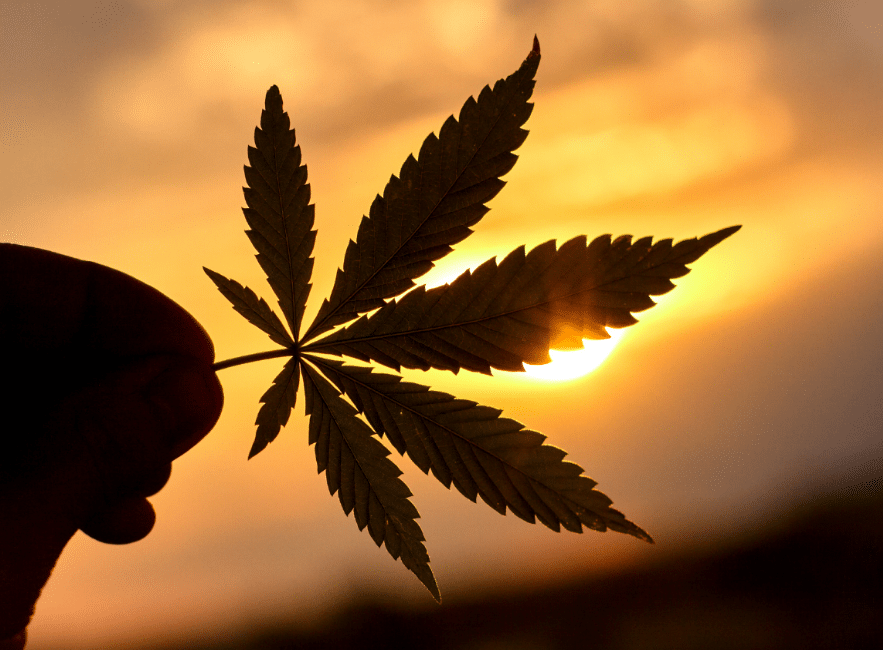
As marijuana is rapidly legalizing across this nation and others, the quiet commonality of using it to unwind is growing ever louder. Alongside recreational use, medical use of marijuana is on the rise but the risk awareness education regarding potential side effects doesn’t seem to be. Despite its reputation as a harmless substance with low addiction risk and high chill-factor, marijuana has risks just like every other substance. Let’s walk through the lesser known repercussions of marijuana use together so you can make an informed decision about the way you manage your body.
Marijuana is known by over 100 names, but most commonly called weed, pot or mary jane. It’s known as cannabis in medical fields and in recent years, the discovery of a physiological system called the endocannabinoid system has led to debate about the way our bodies use and process the elements in marijuana. The system seems to impact sleep, mood, memory, appetite and reproductive functions. While there are notable benefits to the medically supervised use of cannabis in supporting these functions as well as collective of other indicated uses, there are drawbacks as well.
 Not addicted but
Not addicted but
While marijuana is touted as not having addictive properties, and those who use it often defend their reliance upon it with this assumption, it doesn’t mean that all use is healthy. The removal of the terms addiction or dependency from health fields does not negate the very real impact of Marijuana Use Disorder. Depending on marijuana to relax or unwind still indicates use that is necessary to achieve desired states and, as such, disordered.
Whether you are calling it disordered use or addiction, relying on marijuana to unwind or create a favorable mood is not ideal.
It calms me down but
While marijuana may create an out of body experience or feelings of relaxation, there are downsides to the potential mood alterations that it can induce. Ever feel anxious or agitated after smoking a little green? Yeah, that tracks.
It’s a bit of a mixed bag on how marijuana may impact your mood so even though it calms you down, the potential is quite high for that calm to bring along some chaotic friends. Marijuana use may also lead to feelings of apathy and fatigue, particularly in withdrawal or between long abstinence from use. When the high wears off, those hours of lost motivation may contribute to the feelings of stress and strain you began with as now you’re behind too.
I feel better but
Does your body? With a broadening pool of research indicating the potential for heart and lung impairment when smoking marijuana, your perceived health may not be an accurate depiction of your actual health. It may not be everyone who is impacted by the wheezing tightness of breathing difficulties after engaging in some recreational marijuana use, but the chance it may be you is higher than you might have thought. The risks don’t end with tight lungs though. The endocannabinoid response in the cardiovascular system can also lead to a higher heart rate, dilated blood vessels and a temporarily increased risk of heart attack shortly after use.
Additional risks to your fertility, the delicate structures of the mind (including sleep and memory patterns) as well as a generally balanced immune response could exist for some folks using marijuana on a regular or frequent basis.
A being at odds
While the body and mind can’t seem to make a concise decision on the impact of marijuana to your whole self, it’s difficult to make an informed decision. Even the research seems to go back and forth. The positives of managed marijuana use are undeniable in managing things like chronic pain for patients with long term diagnoses like Fibromyalgia or endometriosis. In other diseases like Parkinson’s, it may support tremors and marijuana’s antiemetic properties reduce nausea in cancer patients. Verdict’s still out on research indicating a positive correlation in treating PTSD with medical marijuana, but there is one very clear determination to be found amid the muddle. When you are using marijuana, being risk aware is an accountability check to managing your choice making no matter the reputation of the substance.
It’s clear that marijuana has its place and use, but the importance is in being smart with making your decisions. Ensure you are cultivating a positive relationship with anything you are engaging in to support a deficiency in your world. Whether it’s marijuana, peanut butter or yoga, being negligent in supporting an informed relationships with the tools you use for improvement can enable them to become a crutch of avoidance. If you are using substances to avoid confronting life, we want to help you work through those dependencies.

